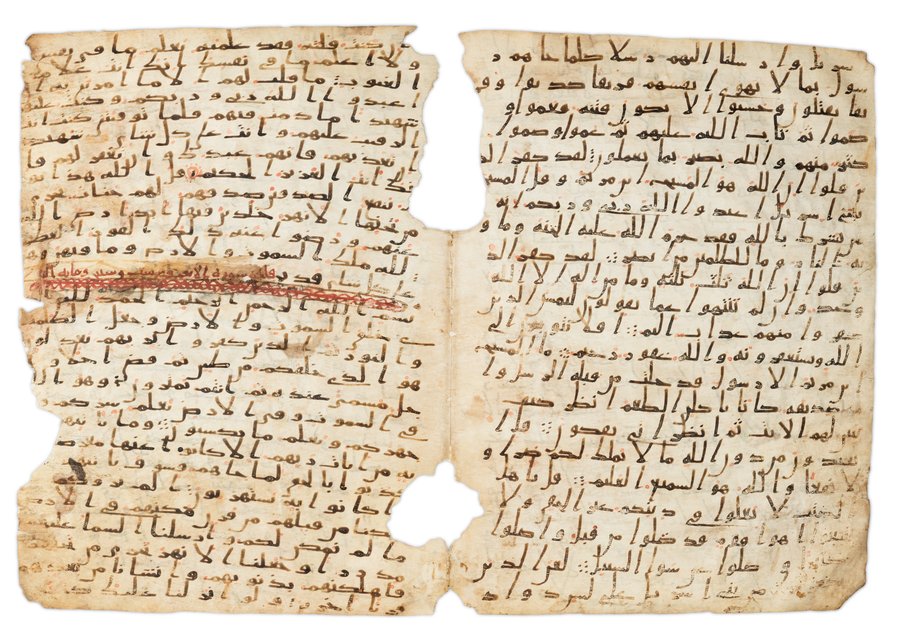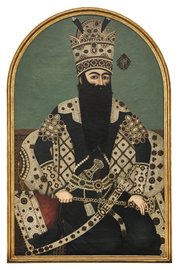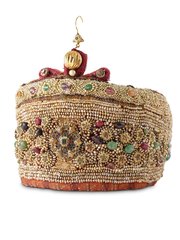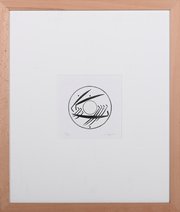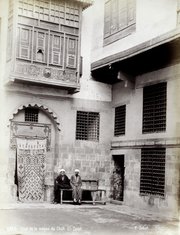
Bifolio of a Qur'an in Hijazi Script
Museum of Islamic Art
- Title:
- Bifolio of a Qur'an in Hijazi Script
- Production place:
- Hejaz
- Date:
- 650 - 733
- Period:
- 7th century CE
- Title:
- Bifolio of a Qur'an in Hijazi Script
- Production place:
- Hejaz
- Date:
- 650 - 733
- Period:
- 7th century CE
- Material:
- Parchment, Ink
- Technique:
- Calligraphy, Illumination
- Dimensions:
- 33.8 × 49.3 cm
The first Qur’ans were copied onto parchment in a vertical format in the so-called hijazi script, a reference to the Hijaz region where Mecca and Medina are located. Until recently, researchers were of the opinion that these folios, produced by the second half of the 1st century AH (end of the 7th century CE and early 8th century CE), were made in this region. However, it is equally likely that they were copied elsewhere in the Middle East if we take into account the fact that conquests already extended over a large part of the Peninsula and the Middle East at this time. This type of format was supplanted by the “Italian format” in kufic script, with just a few lines per page in a far larger script than was the case for folios in hijazi. These were made primarily for practical reading use; presumably their main purpose was to record the text in a format which made it easier to memorise.
